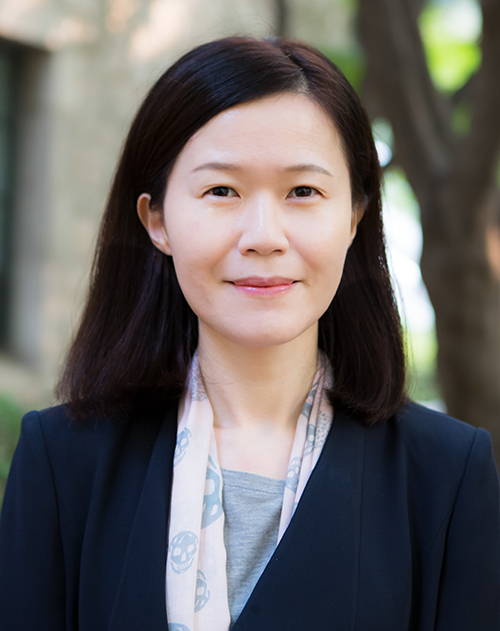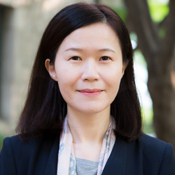Differential Use, Differential Effects: Investigating the Roles of Dif…
페이지 정보
작성자 최고관리자 작성일 16-02-06 00:07 조회 7,322 댓글 0본문
Differential Use, Differential Effects: Investigating the Roles of Different Modes of News Use in Promoting Political Participation
by Prof. Jihyang Choi (choi20@ewha.ac.kr)
Department of Communication and Media

Dr. Choi’s recent publication, “Differential use, differential effects: Investigating the role of different modes of news use in promoting political participation” in Journal of Computer-mediated Communication clarifies the role of the informational use of media in facilitating citizens’ political participation. This study contributes to the field of political communication by identifying more detailed pathways to political behavior from newer forms of news use. The study also produces valuable insight that will allow us to better understand the political implications of the increasingly popular use of online networking services.
The informational use of media has been noted to have positive aspects in promoting citizens’ more active participation in politics (e.g., Bakker & de Vreese, 2011; de Vreese & Boomgaarden, 2006; Shah, McLeod,&Yoon, 2001). Nonetheless, in the understanding of these previous studies, such informational use tends to be limited to news reading behavior. This approach needs to be reconsidered, particularly because the new media environment offers many more diverse ways to use media for informational purposes. Notably, as people increasingly rely on online social networking sites (SNSs) for news (Matsa & Mitchell, 2014), news experiences have come to include diverse ways of processing information, such as browsing news that other users have posted, sharing news stories for other users to read, or expressing responses to news using functions such as “like” or “favorite.”
Therefore, the study investigates how these various types of news-related activities permitted on SNSs (i.e., news reading, posting, and endorsing) function differently in yielding pro-civic consequences. In order to answer and test research questions and hypotheses, the data was collected among U.S. adults in the period of 19 February to 25 February 2014 from a Qualtrics panel. The survey response rate was 45%, and a total of 1,052 valid responses were collected.
The findings show that news posting contributes to greater participation in politics by positively mediating the relationship between the use of SNSs and participatory activities. In contrast, news reading and endorsing were not significantly associated with political participation. At the same time, the study also revealed that the effects of the use of SNSs on political participation via news posting is significantly higher among people with high network political expertise than among those who have lower levels of such social capital.
The current finding that news posting may make people’s SNS use become more meaningful in terms of promoting more active political participation improves our understanding of the relationship between SNS use and citizens’ political lives. Relative to studies suggesting that there is a generally beneficial role in the SNS space in motivating political participation, the present study reveals that there are various ways of using that space for informational purposes, and that these do not yield equally positive consequences. Thus, this more detailed revelation calls for the rethinking of the role of the informational use of specific media in encouraging citizens’ participatory activities.
It is also worth noting that the indirect association of SNS use with political participation through news posting is conditioned upon politically relevant social capital. Most of all, this suggests that we need to consider network-related variables in the analysis of the political consequences of using emerging types of media, such as SNSs.
Jihyang Choi is an Assistant Professor in the Division of Communication and Media at Ewha Womans University, Seoul, South Korea. She earned her doctorate (PHD) of Communications and Master’s degree (MA) in Journalism at Indiana University. Prior to joining Ewha, Dr. Choi was a staff writer at The Hankookilbo, a national newspaper in South Korea. She has published in top-ranking journals such as Journal of Computer-mediated Communication, Journal of Communication, Computers in Human Behavior, and Journalism and Mass Communication Quarterly, and presented at many national and international conferences. Her primary research focus is on a question of how the new media environment influences citizens’ political communication process.
* Related Article
Choi, J. (2016). Differential use, differential effects: Investigating the roles of different modes of news use in promoting political participation. Journal of Computer-mediated Communication, 21(6), 436-450. DOI: 10.1111/jcc4.12176
* References
Bakker, T. P., & de Vreese, C. H. (2011). Good news for the future? Young people, Internet use, and political participation. Communication Research, 38(4), 451-470. doi:10.1177/0093650210381738
de Vreese, C. H., & Boomgaarden, H. (2006). News, political knowledge and participation: The differential effects of news media exposure on political knowledge and participation. Acta Politica, 41(4), 317-341. doi:\
Matsa, K. E., & Mitchell, A. (2014). 8 key takeaways about social media and news. Retrieved from
Shah, D. V., McLeod, J. M., & Yoon, S.-H. (2001). Communication, context, and community: An exploration of print, broadcast, and Internet influences. Communication Research, 28(4), 464-506. doi:10.1177/009365001028004005
- 이전글 Institutional legacy of state corporatism in de-industrial labour markets: A comparative study of Japan, South Korea and Taiwan
- 다음글 Students' expectation, satisfaction, and continuance intention to use digital textbooks
댓글목록 0
등록된 댓글이 없습니다.

